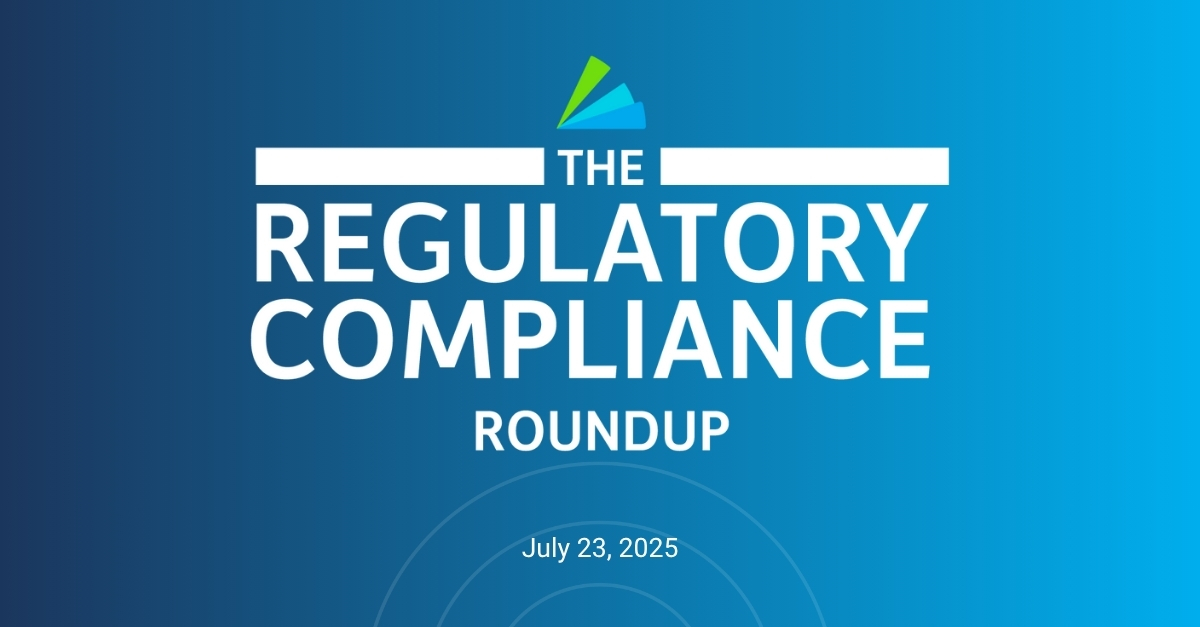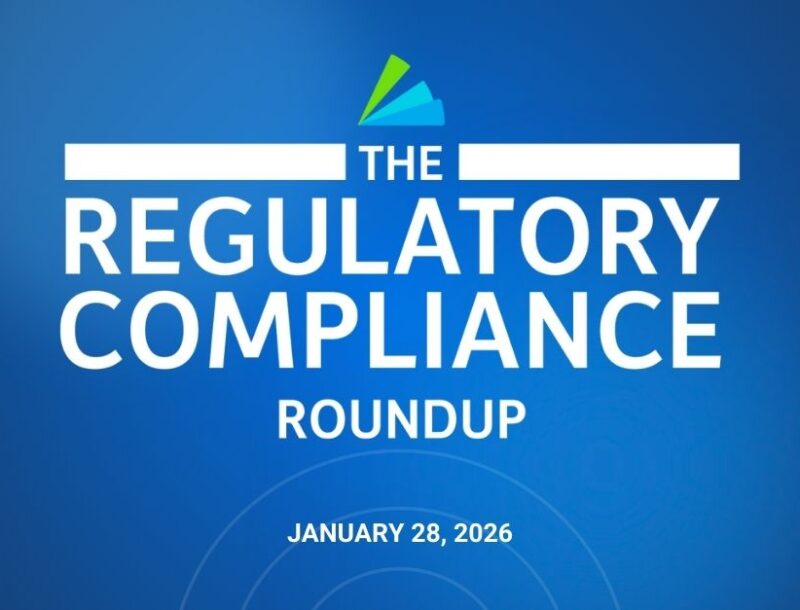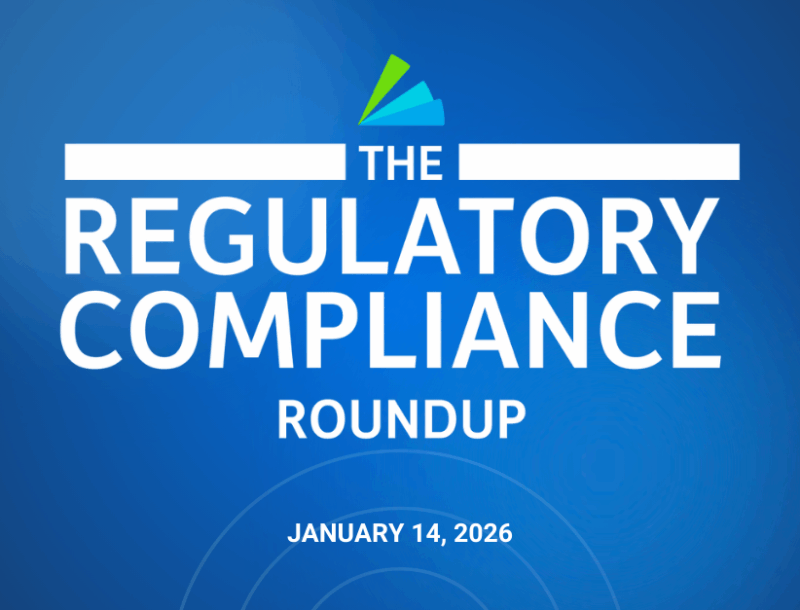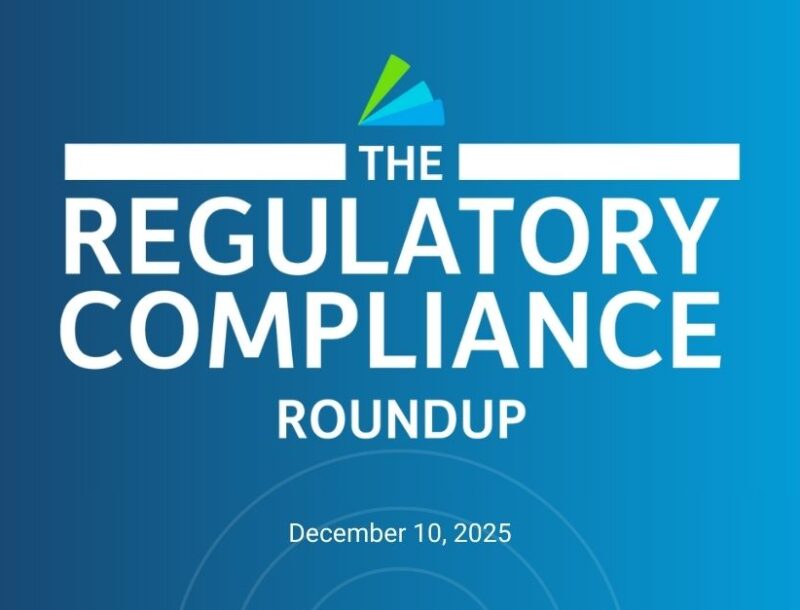The Roundup: CFPB Settles with MLA Violator, Republicans Push Dodd-Frank Roll-Back, FDIC Proposes Changes to ILC Rule

Welcome to the PerformLine Regulatory Compliance Roundup, home of the latest news, articles, and reports from our industry, curated for you. Let’s get into it.
In this edition: The CFPB reaches a settlement on MLA violations, Jonathan Gould becomes the Comptroller of the Currency, Republicans gear up on Dodd-Frank fight, FDIC rolls back Biden-era regulations, and states pick up on consumer protection enforcements.
Do you want to be the first to know when the Regulatory Roundup is released? Subscribe to never miss an email and follow us on LinkedIn for even more updates on marketing compliance.
CFPB Reaches Settlement with FirstCash, Inc. for Military Lending Act Violations
The Consumer Financial Protection Bureau (CFPB) has reached a settlement with FirstCash, Inc. and its subsidiaries over violations of the Military Lending Act (MLA). The company was found to have made over 3,600 prohibited pawn loans to more than 1,000 active-duty service members and their dependents, charging illegal fees and interest rates above the MLA’s 36% cap. Under the settlement, FirstCash must pay over $500,000 in redress to affected consumers and a $1 million civil penalty, and is permanently barred from making future MLA-violating loans.
Jonathan V. Gould Takes Office as the 32nd Comptroller of the Currency
Jonathan V. Gould has been sworn in as the 32nd Comptroller of the Currency after his confirmation by the U.S. Senate. Gould, who previously served as the OCC’s Senior Deputy Comptroller and Chief Counsel, emphasized his commitment to maintaining a strong national banking system, supporting innovation, and ensuring fair access to financial services. He succeeds Rodney E. Hood, who served as Acting Comptroller for five months. Gould brings extensive experience from both the public and private sectors, including roles in law, consulting, and Senate banking committees.
Significant Stat: 78% of all enforcement actions in the first half of 2025 were originated by state regulators, a sharp increase from the second half of 2024 where only 45% of which were initiated by state regulators. Read more
Republicans Gear Up for Dodd-Frank Rollback
House Republicans have launched an effort to roll back key parts of the Dodd-Frank Act, aiming to address a range of banking regulation issues that have built up since the 2008 financial crisis. Long critical of what they see as regulatory overreach, Republicans now hold a rare governing advantage and are pushing to achieve long-held goals, including curbing the Consumer Financial Protection Bureau’s power. Democratic lawmakers said that they would fight to uphold Dodd-Frank and maintain the CFPB.
FDIC Proposes Inflation Index, Changes to ILC Rules
The FDIC board voted to roll back several Biden-era regulations, including withdrawing a proposal to tighten oversight of industrial loan companies (ILCs) and seeking to revert Community Reinvestment Act (CRA) rules to their 1995 standards. The FDIC also proposed reinstating an independent Office of Supervisory Appeals to improve transparency and fairness in resolving disputes. Additionally, it plans to index regulatory thresholds to inflation, aiming to ease burdens on smaller banks as costs rise.
Federal Judge Vacates CFPB Medical Debt Rule
In his decision, the judge argued that the Fair Credit Reporting Act, which was amended in 2003, does not permit the CFPB to remove medical debt from reports. However, per the filing, the bureau can “permit” or encourage creditors to use other categories of information.
Marketing Compliance and Enforcement Actions Review 1H 2025
This report shows that in the first half of 2025 enforcement actions and penalties related to marketing compliance have surged, with billions in fines and heightened scrutiny from state regulators adding new layers of complexity for compliance teams already navigating shifting federal priorities. This report, backed by PerformLine’s monitoring data, highlights key trends, regulatory focus areas, and actionable insights to help companies identify risks early, adapt quickly, and safeguard their brands in an increasingly challenging landscape.


